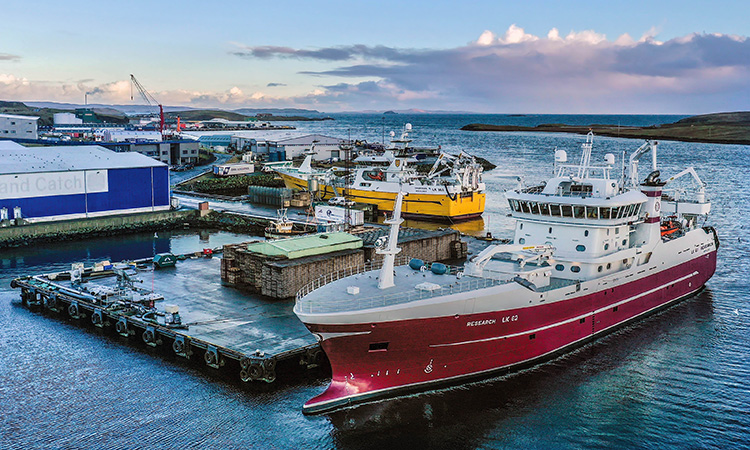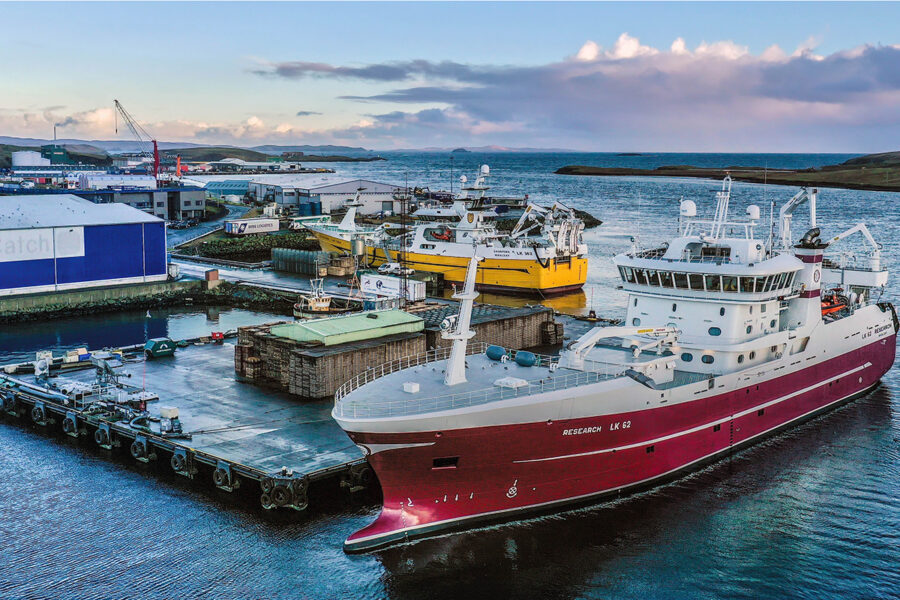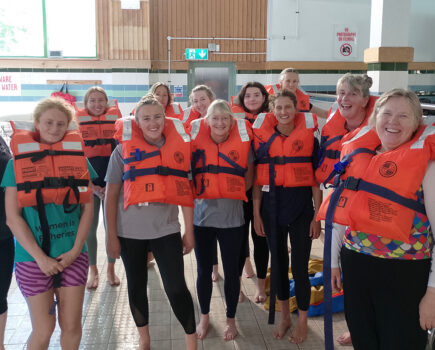A court hearing asking judges to rule against the Scottish government’s new economic link requirements was nearing conclusion as FN went press at the end of last week.
The three-day hearing, held at the High Court in Edinburgh, was taken jointly by the Scottish Fishermen’s Organisation and Shetland Fish Producer’s Organisation on behalf of their pelagic members – although the decision to move ahead with the legal review was, FN understands, only agreed after a vote on the issue, with some dissenting voices.
The application made was for judges to rule against the controversial economic link requirements, part of licence conditions. These were revised last year to require vessels to land an increasing portion of their landings in Scotland, strengthening links, the Scottish government argued, between the fisheries and local communities.
In a previous ruling earlier this year, when the applicants asked for the new licence conditions to be put on hold pending the full hearing, lawyers for the two fishermen’s groups argued that forcing them to land a higher proportion of catches in Scotland would reduce their profitability. The evidence presented to judges at the time suggested that profit levels across the pelagic sector, of up to 40%, were under threat.
Opening the case last Tuesday, lawyers representing the vessel owners argued that the original 1967 Fisheries Act, and subsequent legislation in its wake, up to and including the 2020 Fisheries Act, were concerned with regulating and managing fishing itself. The economic link, they argued, was about shoreside benefits, which were not covered by the act – so the economic link provisions, they suggested, were made with improper purpose.
Furthermore, they argued, the consultations leading up to the decision by the Scottish government were unsound. The original in-depth consultation in 2017 was not relevant following changes to the industry since Covid and Brexit, and the follow-up consultation in 2022 was cursory, largely informal and hadn’t been undertaken in enough depth.
A third argument hinged around Article 1, Protocol 1 of the European Human Rights legislation: “Every natural or legal person is entitled to the peaceful enjoyment of his possessions.” The economic link, they argued, went against this right.
Representatives for the Scottish government, with a large number of civil servants from the Marine Directorate – previously Marine Scotland – attending to provide ongoing advice to them, argued that it was ‘self-evident’ that licence conditions were intended to be used for wider purposes than the basic regulation of fisheries, and that this was enshrined not only in the legislation itself, but in the Joint Fisheries Statement. Schedule 3 of the act in particular, they argued, allowed for regulation of issues not directly related to fishing.
They argued that the consultations had been conducted fairly, and that material conditions since 2017 had not changed. The short 2022 consultation exercise was not ‘new’, but a continuation of the original exercise, they said.

Shetland midwater vessels landing mackerel to Pelagia Shetland. The new regulations will require 55% of all pelagic landings by Scottish vessels to be made into Scottish ports by 2025. (Photo: Ivan Reid)
Lawyers for the Scottish government also presented evidence that they argued demonstrated that sufficient processing capacity existed in Scotland for the additional landings, boosted by the major grants to the processing sector that were announced earlier this year.
They also argued that changes to economic link conditions relating to crewing for the vessels concerned would have minimal impacts on vessels with high rates of pay that were largely crewed by ‘family and friends’.
A report presented to the court from fisheries consultant Poseidon was also successfully challenged by lawyers representing the Scottish government. Discussions on the figures extended into day three, with both sides making claims about the average annual profits of the vessels involved in the case, and the possible reduction to these profits that may accrue from being forced to land higher volumes to Scottish processors.
The decision to move ahead with the case has raised eyebrows both inside and outside the industry. Providing detailed insight into the income and profitability of the most successful sector of the UK fishing industry carries several inherent risks.
And losing an argument in court about the applicability of ‘non-fishing’ issues to licence conditions could also cause collateral damage. Increasing numbers of anti-fishing and animal welfare NGOs are reportedly eyeing up the judicial review route as a way of closing down large parts the industry, and will be reading this judgement with interest.
As FN goes to press, no timing was available for the handing down of the judgement in the case. Such judgements are at the discretion of the judiciary; they may be available almost immediately, as was the case with the preliminary hearing in this case, or may take as long as several months to be produced.
FN contacted all parties involved in the hearing, none of whom were willing to comment on the ongoing case. A full report will appear in FN when the written judgement is handed down.
New economic link regulations
The main points of the new regulations are:
- Landings must be made into Scotland rather than into the UK
- The minimum level for qualifying for economic link criteria will increase from landings of 2t to landings of 10t
- The required rate of landings into Scotland will increase from 50% to 55% for demersal and shellfish stocks covered by the provision
- The landings target rate for pelagic species will be phased in and increased to 55% over a three-year period – 30% in 2023, 40% in 2024 and 55% in 2025
- The landings target will only cover the eight most important species, by landedvalue,intoScotland – herring, mackerel, Nephrops, haddock, monkfish,cod,hakeand whiting, which account for 90% of the value of total landings by Scottish vessels of TAC stocks
- Options for demonstrating compliance through crewing and/or operating expenditure will end, but the option to gift quota in lieu of landings into Scotland will continue.The formula used to estimate a suitable quota gift will be amended to better reflect the gross value added from fishing.
This story was taken from the latest issue of Fishing News. For more up-to-date and in-depth reports on the UK and Irish commercial fishing sector, subscribe to Fishing News here or buy the latest single issue for just £3.30 here.
Sign up to Fishing News’ FREE e-newsletter here.








